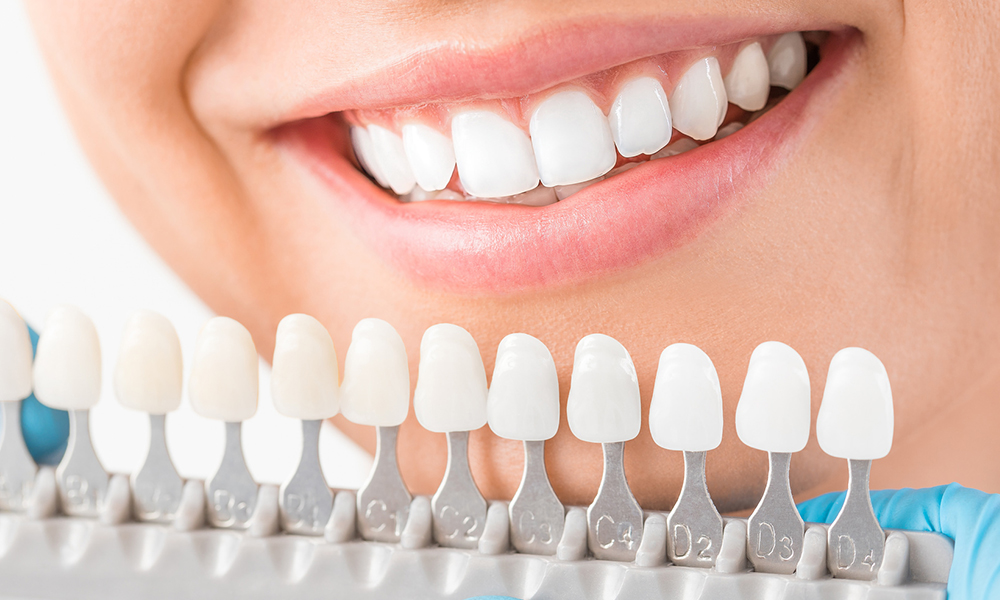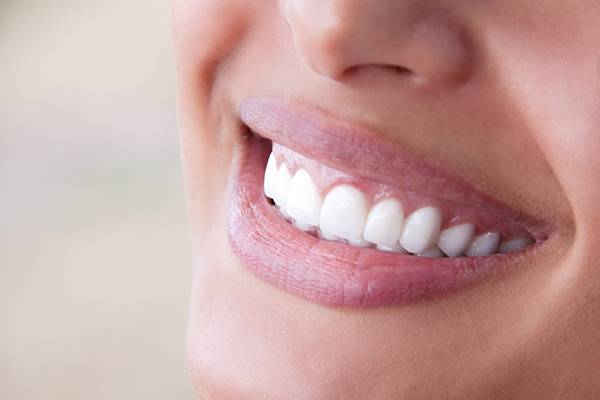Things to Know Before Getting Porcelain Veneers?

Porcelain dental veneers are a popular cosmetic dental procedure designed to improve the appearance of your teeth. Whether you’re dealing with chipped, discolored, or misaligned teeth, veneers can work wonders to create a flawless smile. However, before you take the leap into this cosmetic transformation, there are several important factors to consider.
In this article, we’ll explore everything you need to know before getting Porcelain veneers, from the benefits and costs to potential drawbacks. By the end of it, you’ll be well-informed and ready to make the best decision for your smile!
What Are Porcelain Veneers?
Porcelain veneers are thin shells of porcelain that are bonded to the front surface of your teeth. They are custom-made to match the color and shape of your natural teeth, making them a great option for individuals who want to improve the appearance of their smile. Think of them like a thin coat of paint on a wall – it can transform an ordinary surface into something beautiful and fresh.
How Do Porcelain Veneers Work?
The process of getting porcelain veneers typically involves several steps. First, your dentist will remove a small amount of enamel from the surface of your teeth to make room for the veneers. Then, impressions are taken, and a dental lab custom-makes the veneers to fit your teeth precisely. Finally, the veneers are bonded to your teeth using a strong dental adhesive.
The procedure is minimally invasive, which means you won’t have to worry about major discomfort or extensive recovery time.
Benefits of Porcelain Veneers
Porcelain veneers offer numerous advantages:
. Aesthetic Appeal: Veneers can address various cosmetic issues such as discoloration, chips, gaps, and misalignment. They give you a naturally beautiful smile.
. Durability: Porcelain is highly durable and resistant to staining, making it an ideal material for long-lasting dental improvements.
. Minimal Maintenance: Unlike teeth whitening treatments, porcelain veneers don’t require ongoing maintenance, and they are easy to clean.
Think of porcelain veneers as a makeover for your smile – giving you that “wow factor” without the need for invasive surgery.
Are Porcelain Veneers Right for You?
While porcelain veneers are suitable for many, they may not be ideal for everyone. Ideal candidates are those with healthy teeth, gums, and a realistic expectation of the results. People who suffer from severe tooth decay or gum disease may need to address those issues before getting veneers.
Additionally, if you have habits such as grinding your teeth or clenching your jaw, porcelain veneers may not be the best choice, as these can damage the veneers.
How Long Do Porcelain Veneers Last?
One of the main reasons people opt for porcelain veneers is their longevity. On average, porcelain veneers can last anywhere from 10 to 15 years with proper care. While they are durable, it’s essential to practice good oral hygiene and avoid habits that may harm your veneers, such as chewing on hard objects.

How Much Do Porcelain Veneers Cost?
Porcelain veneers are considered a cosmetic procedure, which means they are typically not covered by dental insurance. The cost can vary depending on several factors, such as the number of veneers you need, the location of the dental office, and the expertise of the dentist.
On average, the cost for a single porcelain veneer can range between $900 and $2,500. While this may seem expensive, many patients find the investment worthwhile for the long-term improvement in their smile.
The Procedure: What to Expect
Getting porcelain veneers involves multiple visits to your dentist. Here’s a general breakdown of what to expect during the process:
1. Consultation: Your dentist will assess your oral health, discuss your goals, and determine if veneers are the best option.
2. Preparation: The dentist will remove a small amount of enamel from your teeth to make space for the veneers.
3. Impressions: Impressions will be taken of your teeth, which are sent to the lab to create custom veneers.
4. Bonding: Once the veneers are ready, they will be bonded to your teeth and adjusted for a perfect fit.
Do Porcelain Veneers Hurt?
The process of getting porcelain veneers is generally not painful. The preparation phase involves the removal of a small amount of enamel, but this is done under local anesthesia to ensure you’re comfortable throughout the procedure.
You may experience some sensitivity after the procedure, but this should subside in a few days.
Risks and Potential Drawbacks
While porcelain veneers are a popular cosmetic solution, there are some risks and drawbacks to be aware of:
. Irreversibility: Once enamel is removed from your teeth, it cannot be replaced. This means that the procedure is irreversible.
. Damage: Porcelain veneers are durable, but they can chip or break if you bite down on something too hard.
. Cost: As mentioned earlier, veneers can be expensive, and since they are considered a cosmetic procedure, they are rarely covered by insurance.
How to Care for Your Porcelain Veneers
Caring for your porcelain veneers is relatively simple. Here are a few tips to ensure they last as long as possible:
. Brush your teeth at least twice a day with a non-abrasive toothpaste.
. Floss daily to prevent plaque buildup.
. Avoid biting on hard objects such as ice, pens, or fingernails.
. Regularly visit your dentist for checkups.
Alternatives to Porcelain Veneers
If you’re not sure porcelain veneers are the right choice for you, there are alternatives available:
. Bonding: Dental bonding is a quicker, more affordable solution for minor cosmetic issues.
. Crowns: If you have more significant damage or decay, dental crowns may be a better option.
. Whitening Treatments: For discolored teeth, teeth whitening might be sufficient if veneers aren’t necessary.
Can You Reverse Porcelain Veneers?
No, porcelain veneers are not reversible. Once your dentist has removed a small layer of enamel, that tooth structure is gone for good. This is why it’s crucial to carefully consider the decision before moving forward with veneers.
How to Choose the Right Dentist for Veneers
Choosing the right dentist is essential to ensure the best results. Look for a dentist with experience in cosmetic dentistry, specifically in creating and placing porcelain veneers. Don’t hesitate to ask for before-and-after photos of previous patients and to read reviews from other patients.
The Difference Between Veneers and Crowns
Porcelain veneers and crowns are both options for improving the appearance of teeth, but they serve different purposes. Veneers are typically used for cosmetic issues on the front teeth, while crowns cover the entire tooth and are often used for teeth with more significant damage or decay.
Should You Get Porcelain Veneers?
Ultimately, the decision to get porcelain veneers is a personal one. If you have cosmetic dental concerns and are looking for a long-lasting, aesthetically pleasing solution, veneers could be an excellent option. However, make sure you fully understand the process, costs, and potential risks before moving forward.
Conclusion
Porcelain dental veneers can dramatically improve the appearance of your smile, but they are not a decision to be taken lightly. By understanding the procedure, costs, and potential risks, you’ll be able to make an informed choice that suits your needs.
FAQs
1. Are porcelain veneers worth the cost? Yes, many people find porcelain veneers to be worth the investment due to their durability and ability to enhance the appearance of their smile.
2. How long does it take to get porcelain veneers? The process typically takes two to three visits: one for consultation and preparation, and one or two for fitting and bonding the veneers.
3. Can I get veneers if I have crooked teeth? Yes, porcelain veneers can help improve the appearance of crooked teeth, although they are not a substitute for orthodontics in some cases.
4. Do porcelain veneers look natural? Yes, when properly crafted and applied, porcelain veneers can look incredibly natural and blend seamlessly with your existing teeth.
5. Can veneers fix gaps between teeth? Yes, porcelain veneers can effectively close gaps between teeth, giving you a more uniform smile.








